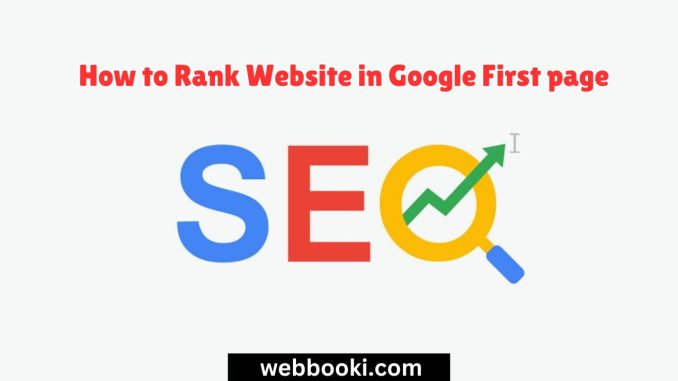
Therefore, ranking a website on Google’s first page is important for any business or marketer. It requires strategic planning, consistent effort, and a deep understanding of the principles of SEO for one to do this. The following guide is going to take you through this very complex landscape comprehensively.
Advertisement
1. Know Your Audience
Before you start optimizing your website, you have to know who your audience is. Spend some time conducting market research into what they need, their preferences, and their pain points. Utilize tools such as Google Analytics and social media insights that provide data about user behavior. Finally, this will be able to give one a better insight into how to build positive content for your target audience.
2. Keyword Research
Keywords are the foundation of SEO. Using tools like Google Keyword Planner, SEMrush, or Ahrefs will help identify relevant keywords that boast a very good search volume and decent, manageable competition. Make sure to target a mix of both short-tail and long-tail keywords. The reason being, long-tail often faces less competition and can drive really targeted traffic.
3. On-Page SEO
In addition, optimization of your website’s on-page elements is crucial. The following are some major attention areas:
Advertisement
- Title Tags and Meta Description: Using below provide compelling title tags (roughly 60 characters) and meta descriptions (about 150 characters), with your major keywords, that invite clicks.
- Header Tags: Use H1 for main heading; make use of H2, H3 for subheadings so proper hierarchy of content is maintained as understood by Google.
- Content Quality: Create high-quality, original content that contributes value. Go for depth and relevance. Use keywords naturally; do not stuff keywords.
- Internal Linking: Link other pages of your website for better navigation and to spread link equity. It helps with good user experience and in addition, it aids Google in indexing your site.
- Image Optimization: Descriptive file names and Alt tags have to be used for the image. It aids not only in SEO but also in better accessibility.
4. Mobile Optimization
With more users browsing websites with the use of mobile devices, it will be best to have your site mobile-friendly. Employ responsive design techniques and test your site on various devices. Google gives higher ranking priority to mobile-friendly sites.
5. Site Speed
Page speed is a key ranking factor, so make sure you analyze and optimize it using tools such as Google PageSpeed Insights. Compressing images, leveraging browser caching, and minimizing JavaScript and CSS files are just a few ways to help improve overall load time.
6. Technical SEO
Technical parts of SEO will factor a lot in your rankings. Ensure your site is crawlable by:
- Creation and submission of an XML sitemap. Use clean URL structure that reflects the hierarchy of content.
- Implementing HTTPS for secure browsing.
7. Building Backlinks
Quality backlinks from authority sites scream trust to Google. Guest blog, influencers, shareable content-infographics-this is the way to incentivize backlinks. Monitor your backlink profile with tools like Ahrefs to ensure that you have a healthy link portfolio.
8. Local SEO
If you operate a local business, optimize your business for local search. Make sure to claim your listing in Google My Business, keep your name, address, and phone number consistent everywhere online, and collect positive reviews. 9. Regular Update of Contents Fresh content will keep your site relevant. Update existing content on a regular basis, and write new blog posts or articles. This provides an improvement in your SEO and also draws visitors’ interest to revisit your website.
10. Monitor and Adjust
Set up analytics tools to monitor your rankings, traffic, and user behavior. Keep evaluating what is working for you and what isn’t. SEO is a continuous process; be ready to change your strategies based on performance and algorithmic changes.
Conclusion
Ranking on the first page in Google requires several facets: knowing your audience, researching your keywords, optimizing content, enhancing the technical aspect, and dedication. Focus on those key areas and be flexible to really build up the success of your ranking and organic traffic coming to your site.
Advertisement
Leave a Reply